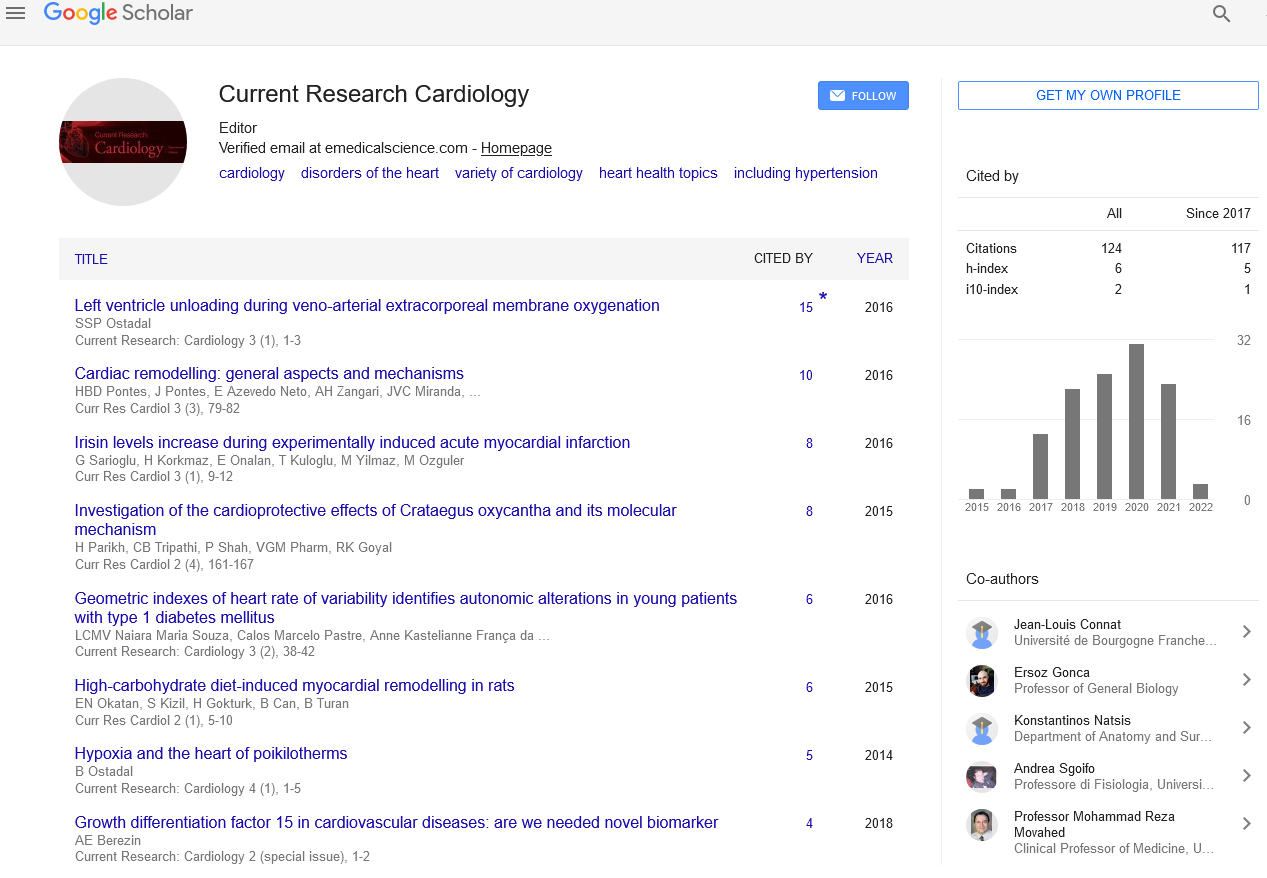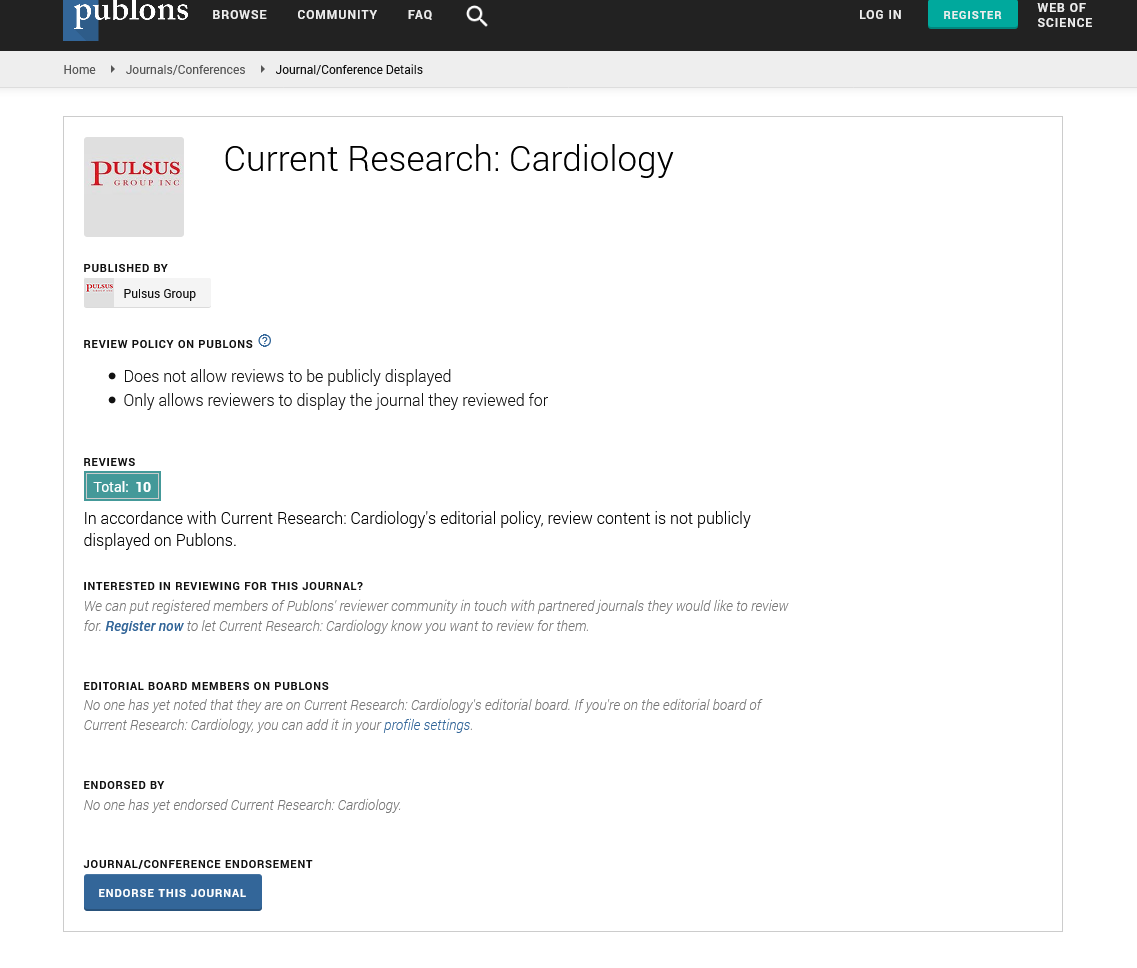Cardiovascular effects of methamphetamine use disorder: A review of the epidemiology, etiopathogenesis, clinical presentation and management
2 Department of Clinical Oncology, Punjab Medical College, Medical University, Faisalabad, Pakistan, Email: marslanarif@ymail.com
3 Department of Surgery, Howard University Hospital, Washington DC, USA, Email: marslanarif@ymail.com
Received: 22-Dec-2018 Accepted Date: Feb 20, 2019; Published: 26-Feb-2019
Citation: Sagheer S, Maan MAA, Sohail AH, et al. Cardiovascular effects of methamphetamine use disorder: A review of the epidemiology, etiopathogenesis, clinical presentation and management. Curr Res Cardiol 2019;6(1):1-4.
This open-access article is distributed under the terms of the Creative Commons Attribution Non-Commercial License (CC BY-NC) (http://creativecommons.org/licenses/by-nc/4.0/), which permits reuse, distribution and reproduction of the article, provided that the original work is properly cited and the reuse is restricted to noncommercial purposes. For commercial reuse, contact reprints@pulsus.com
Abstract
Methamphetamine (MA) abuse is a global problem with far reaching consequences on physical and mental health of those suffering from this menace. As far as the health complications of methamphetamine abuse are concerned, multiple organ systems undergo pathologic changes which manifest as wide array of clinical signs and symptoms. One of the most commonly affected organs is the heart. Cardiac complications are, in fact, the second leading cause of death in methamphetamine abusers. Cardiac conditions frequently seen in methamphetamine abusers include myocardial infarction, aortic dissection, arrhythmias, sudden cardiac death, malignant hypertension, cardiomyopathy with resultant congestive heart failure and pulmonary hypertension. Much to the relief of our medical community, however, methamphetamine abuse associated cardiomyopathy is potentially reversible. The key to reversibility of the cardiomyopathy is early detection followed by complete abstinence from methamphetamine use as well as the initiation of goal-directed therapy. The degree of cardiomyopathy reversal would depend on the total duration of methamphetamine use and the degree of myocardial damage at the time of diagnosis. The possibility of partial or even complete reversal of cardiac complication is an encouraging and reassuring medical fact which should be emphasized in patient counseling to motivate newly diagnosed patients of methamphetamine abuse to abstain from further abuse in the future. Our review aims to summarize the current literature on the cardiovascular complications of methamphetamine abuse, the various mechanisms of cardiac toxicity involved in the pathophysiology of methamphetamine abuse associated cardiomyopathy, the wide-ranging clinical presentations of the cardiomyopathy and the management options that are currently at our disposal.






